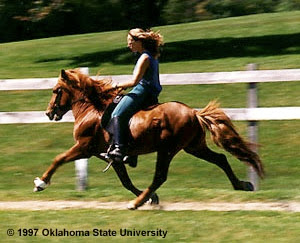8:27 PM
| Sunrise at | 10:05 AM | in direction | 139° | Southeast | |
| Sunset at | 4:01 PM | in direction | 221° | Southwest |
Horses can survive in subarctic conditions. They are not native to this region, but they can survive it. How? By eating lots and lots and lots. My friend, Vera Alexander, shares her property with Icelandic horses, which eat less than other breeds. They were bred for the cold, but she had show horses for years and she says as the temperatures drop, one simply increases the amount of food available.
Isn't that fascinating? It is to me. If I were to eat more and more and more, I still would not be able to withstand the cold on my skin at some point. Don't get me wrong. There are many people in Fairbanks who are obese in response to the cold. You can see them walking around in shorts on just about any given day. They have enough fuel to feel warm - for the short walk they make from the inside of a building to a car. You don't see them out walking along the street or doing outside chores for several hours.
But horses can survive with minimal shelter and do just fine. I remember seeing horse barns in Colorado mountain regions that were not full barns. They were mostly open to air, but did provide shelter from falling snow. I still don't know that I would house horses that way, but I do understand why it wasn't as much of an issue as I thought it would be. There is a region to the south, Chisana, near the Wrangell's that has enough fodder that horses over winter without much extra hay. I have been stretching my brain to think of what temperature could be moderate enough for me to survive this way in winter.
But, here is a blurb from a website that claims to have guided horseback tours using some of these horses as mounts: Alaskan "chick" epitomizes the saying - Alaska, where the men are men and so are the women.
We have 7 months of winter every year. There are no groomed trails where we'll lead you The horses live here, year-round. They are true range horses. they survive the coldest winters of alaska. they fight wolves, and win. Oh, and our horses, they hold grudges.
 |
| Pioneer Outfitters, 2001 |
Icelandic Horses are interesting for several reasons. They are bred to be companions and loyal to humans. Yes, they do need to be trained for riding like other horses, but emotionally, the breeding is more along the lines of house pet as opposed to racers and haul animals. They do not kick. Yes, you can walk behind an Icelandic without worrying overly much about that part of horse care. They have a very even trot (toelt), and a special race pace (skeil) which is best seen rather than described.
 |
| Skeil - Lateral gait (same side, same motion) reaches speeds of 30mph for short distances |
Oklahoma State U provides a nice overview of the breed, although these have a lot less fur than Vera's even in summer up here: OSU Information Page. But they do show important characteristics: stocky, smaller in stature, and amazing manes and tails.
I love taking care of the Icelandics. Gary and I lived with Vera when we first moved here. She still traveled a lot then and we often had the care of the horses in her absence. They never forget you and are very affectionate in nature. Despite their short stature, they are very, very solid animals and I always am grateful that Icelanders were so intelligent in their breeding program that I can stand around them without fear.
What brought horses to mind today, and what is required for horse survival here in the Interior, is that my favorite vet, and his stand-in when he is out of town, are farm vets. He often is making rounds on the ranches in town. My youngest bitch, JayJay, developed a histocytoma. Dr. Corte Zachel and Dr. Souel offer alternative therapies at regular intervals. Dr. Souel favors acupuncture and Chinese herbs. Corte carefully explores remedies based on his readings. When I mentioned to Dr. Souel that Corte also provided creative, successful therapies that other vets didn't seem to know about, she said it was because they treated horses. One had to be creative with horses many times to effect a cure.
I will discuss an ongoing therapy they have been working on for JayJay tomorrow. To me, it is not at all surprising that I could have such intelligent, innovative vets up here in Alaska. As I've said before, End-of-the-Roaders appear to be a very creative bunch.
No comments:
Post a Comment
Thanks for taking time to comment.